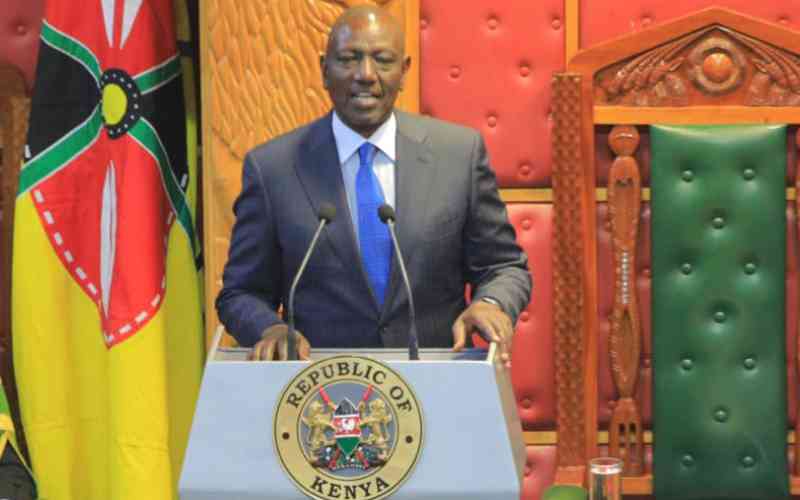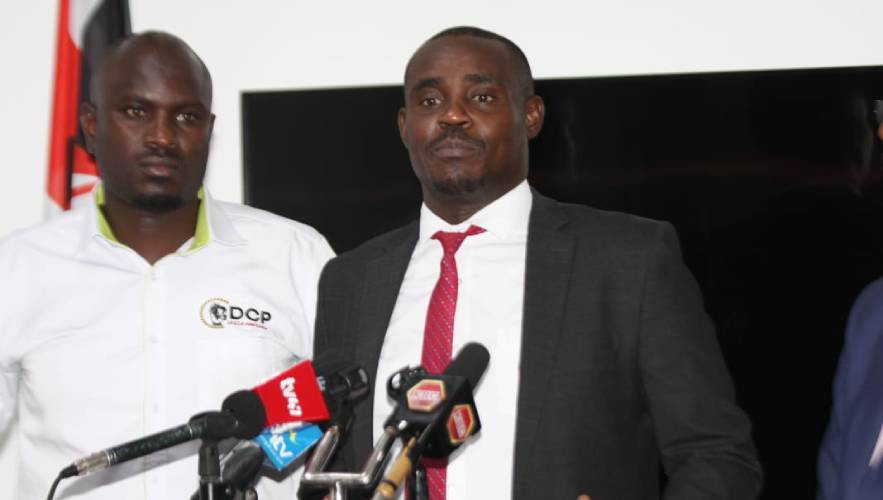The Kenyan constitution demands an unwavering culture of the rule of law, a foundational national value enshrined in Article 10 of the Constitution.
The Judiciary was established to interpret, defend, and apply the law. Some of its defence mechanisms include issuing court orders to stop unconstitutional acts.
Defiance of court orders is considered contempt of court and can lead to legal consequences, including a jail term for at least six months or payment of hefty fines.
However, the judiciary has found itself at a locker head with the executive, legislature, security agencies, companies, and citizens, raising the question on its capability to defend the law.
Rampant disobedience of court orders from the executive led by President William Ruto and his predecessor has left Kenyans wondering if the courts have powers or is a toothless dog.
On April 28, 2025, five people were killed by the police and scores were injured as police forced entry onto a 6,000-acre land in Angata Barikoi in Narok County.
According to the Kenya National Commission on Human Rights (KNCHR), the shooting happened in defiance of a court order that stopped any interference with the disputed land.
The Director of Public Prosecution, the Independent Policing Oversight Authority, and the Ministry of Interior have taken note of the same.
In early April, the government came under scrutiny over the disobedience of a court order, which allowed 50 girls from Butere Girls High School to stage ‘Echoes of War’ play in Drama festivals held in Nakuru.
In utter disobedience of court orders, the security agencies not only frustrated the students’ performances but also used excessive force in the build-up to the event of April 10.
On April 9, the officers teargassed journalists covering their attempt to bar the playwright, former Senator Cleophas Malala, from rehearsing with the students. Six journalists were injured.
The following day, the police teargassed the students and residents of Nakuru who went in solidarity to watch the play. The venue was locked to the public, frustrating the girls who did not perform but only sang the National Anthem.
Chief Justice Martha Koome condemned the incidents, describing them as a serious insult to the rule of law.
“It is particularly disturbing that these events occurred against the backdrop of clear and binding court orders issued by the High Court sitting in Kisii,” Koome said.
The court, she noted, had ordered the school and festival organisers to facilitate the participation of the students in the festivals.
Stay informed. Subscribe to our newsletter
Koome emphasised that defying court orders threatens the foundation of Kenya’s constitutional democracy.
“Defiance of court orders not only undermines the authority of the courts but also poses a serious threat to the rule of law, which is the bedrock of our society,” she stated.
“Respect for court orders is not optional. It is a constitutional imperative that safeguards our collective commitment to the rule of law,” she added.
It is not the first time; the government and top officials have been on the spot over defiance of court orders.
The Inspector General of Police (IG), Douglas Kanja, and the Director of Criminal Investigations, Mohammed Amin, ignored three separate judicial summonses by two judges.
The two were to answer on the growing crisis of abductions gripping the country, including the disappearances of Justus Mutuma and Martin Mwau in Mlolongo last December.
The two were later found dead.
Deputy Inspector General Administration Police, Gilbert Masengeli, then Acting Inspector General, was jailed for six months for disobeying seven court orders that had summoned him.
Masengeli was jailed for failing to appear before the court and to answer questions about the disappearance of activist Bob Njagi and brothers Jamil and Aslam Longton, who were all found alive on Friday, September 20.
He was forced to make a public apology before the High Court Judge Lawrence Mugambi to avoid a jail term.
The two followed in the footsteps of President Ruto, who made it public on January 3, 2024, in Nyandarua that he would defy court orders stopping the construction of affordable housing units, roads, and other projects.
According to Ruto, the government would ignore court orders that he claimed were meant to derail his government agenda, especially those by alleged corrupt judges.
Ruto went ahead to order the Roads Principal Secretary, despite court orders, to ensure the construction of a road in Nyandarua resumes.
Late Professor Okoth Ogendo insisted on the need for a constitution with constitutionalism. Ogendo argued that in a culture of compliance, a constitution becomes nothing more than a polite suggestion.
Kenya now finds itself in the predicament since progressive laws are enacted, judgments are delivered, and declarations are made, but the same are ignored and taken as friendly advice.
National Assembly Speaker Moses Wetang’ula defied a court order that ruled that the Azimio coalition was the majority in Parliament.
Notably, despite the court orders, Wetang’ula navigated around the judgment and delivered a ruling that contradicted it, recycling an argument that was quashed by the court.
County bosses have not been left behind. Governor Susan Kihika was on February 18, 2025 fined Sh1 million after failing to comply with an order to stop release of solid and toxic waste into Lake Nakuru.
She has appealed the case.
The governor, alongside Nakuru County Commander Samuel Ndanyi, ignored six orders directing the reopening of War Memorial Hospital and a contempt proceeding was lodged.
The orders were issued between November 1, 2023 and February 1, 2024 by Judges Anthony Ombwayo and Millicent Odeny.
The commander was summoned severally times and only appeared before the court when pressure mounted on him.
Kihika also faced two other cases, including a contempt proceeding in 2022 and 2023, for allegedly ignoring orders that barred the swearing in of the County executive committee members and the Chief Officers.
The defiance turned rampant that in June 2020, former Chief Justice David Maraga called our President Uhuru Kenyatta for his defiance, terming him out of order.
He spoke following the refusal by the government to allow Lawyer Miguna Miguna back into the country.
It reached a point in October 2021 when former Chief Justice Willy Mutunga asked judges to down their tools and compel the executive to obey court orders.
Former Law Society of Kenya President Nelson Havi maintains that court orders are not suggestions and must be obeyed.
He said that those who defy court orders must be dealt with by the court.
“A court order is not an ink on a document but an active force that wrestles power from the self-declared lords of the earth, reminding them that authority, unless justified by the Constitution, is no authority at all,” said Professor Gitile Naituli, a political analyst.
Naituli uses the term fundamental to describe the constitution. He said court orders are binding instruments of justice, issued in the name of the people.
“Under Ruto administration, a dangerous pattern is emerging—one that threatens to unravel the very fabric of our republic: the systematic disobedience of court orders,” he said.
He accused the executive of showing a brazen disregard for judicial authority and only using the law when it aligns with power.
“This is not just administrative arrogance, it is constitutional sabotage. When the Executive ignores the judiciary, it tells every citizen, every business, every institution that obedience to the law is selective,” he said.
He said that the actions weaken the court and the nation.
He calls out Ruto for using constitutionalism to campaign and appointing judges as proof he will abide by the same, but then changes tune.
“Disobedience of court orders is not a display of strength- it is an admission of fear. It is what governments do when legality becomes an obstacle to political expediency,” he said.
He urged Kenyans to remain vigilant, speak out on impunity, and urged the judiciary to stand tall as it is the last line of defence.

























